We called him the Sad Donkey.
He lived at the Sad Sheep Farm just up the road and around the corner from our quinta. Whenever we’d drive past, there he’d be, tied to a tree with a short length of rope looped and knotted around his neck. Just long enough for him to lie down, but short enough that he couldn’t go anywhere or graze anything or access any sort of protection from the elements.
Sometimes the Sad Donkey would have hay. Most times not. He must have had water available somewhere because he stayed alive, but I could never see a trough or a bucket or anything drinkable anywhere within reach. He spent his days standing in the dust, head low, ears back. Nothing to do and nowhere to go. It was hard to see.
Since our family moved to Portugal nearly three years ago, we’ve experienced a lot of hard-to-see animal sights. Dogs in dirt yards, forever weighed down by a chain, with the barest minimum of shade or shelter (in one case, the “shelter” is an old rusty barrel). Or dogs left out on a tiny Juliet balcony all day long in the searing summer. Parrots cramped in cages several sizes too small for their wingspan. Pets bearing multiple, massive tumors. Tick-infested strays. Sheep limping home from the field, trying to keep up with the rest of the flock on only three legs, the fourth a useless dangling appendage.
I’m not saying all animal owners in Portugal mistreat their charges. I’m not saying all animal owners in the States take good care of theirs. I’m simply saying that in the last three years I’ve seen far more destitute beasts than I’m accustomed to seeing in daily life.
The Sad Donkey really got under my skin.
When I was 12 years old, I bought a donkey from my cousin for 25 bucks. I wanted a horse but Jackie the Donkey was as close as I could get… until he bucked me off, broke my arm, and my Dad ponied up (heh) the cash for horseback riding lessons. Those lessons led to me getting a “real” horse one year later. And that’s how I spent my teenage years — mucking out stalls, acquiring equestrian skills, and spending every extra cent I could on new tack or riding apparel or, I don’t know, buying bottles of ShowSheen so my Quarter Horse’s coat would gleam.
I have no idea what Jackie’s backstory was. I don’t know how old he was. He lived with us and our ever-increasing herd of horses and ponies for at least a decade before we found him stiff in his stall one morning, having died of old age in his sleep.
He was a funny little guy and a good friend and inspired in me a lifelong love for donkeys.
It’s no wonder, with memories of Jackie lodged firmly in my heart, that I couldn’t stop worrying about the Sad Donkey. Sometimes when I took the dogs out for a walk, I’d plan a route past the Sad Sheep Farm and stuff a few hefty carrots in my pockets. When we walked by the fence nearest Sad Donkey, I’d call hello, check left and right to make sure no one was watching, and yeet the carrots within chomping distance.
But that wasn’t enough. As the months went by and biting flies and blazing skies gave way to winter rains, the donkey’s plight gnawed at me. My sister in California urged me to rescue him. “You could put him in your backyard!” she said.
Sad Donkey is a big fella, though. Much taller and longer than Jackie was. My little quinta definitely doesn’t have the right space or pasture or shelter to do the donkey justice. Because I firmly believe that if you don’t have the time or space or provisions for an animal, you shouldn’t own it. Plus, I know from experience what it takes to be a Horse Girl. I’m not sure I have that level of dedication in me anymore.
But still. I’d see things like this and I’d wake up at night worrying about it…
I started talking to people about the Sad Donkey, wondering what options there might be. Even though Portugal has animal welfare laws on the books — and the Guarda Nacional Republicana (GNR) has a special unit to whom you’re supposed to be able to report cases of animal cruelty — enforcement is hard to come by. Especially out in the countryside, which seems to run by rules that view animals as tools, not pets.
Everyone said, “You could report it, but…” then shrugged like it would be a waste of effort and time.
After more than a year of obsessing over the Sad Donkey, I decided it was time for some creative thinking. What if, I thought, what if I could convince the farmer to sell the donkey to me, the odd American lady, and then I could find a forever home for him that was safe and kind and comfy. A place with a little stable and a big pasture, with plenty of cool water, good hay, and crunchy carrots.
I talked to my Dutch neighbor Martelle about my idea and she didn’t think I was crazy. She knew the donkey I was referring to because she too had passed by him for months. She had seen the short rope, the terrible conditions. She listened to my idea and added a brilliant “Yes, and…”
At the back of Martelle’s quinta lies a large pasture populated only by two tiny goats (Bean and Vanilla). Martelle’s daughter, who now lives in the Netherlands, was a Horse Girl and the pasture was for her mare (Peggy), who also now lives in the Netherlands. If I could get the donkey, Martelle could offer him a safe place to stay, complete with a nice shelter from the elements, until his forever people were located.
Not only that, but she’d help me go talk to the farmer. Since she’s lived in Portugal for more than 20 years, her language skills far outstrip mine.
Plan in place, I did some research on the going rate for sad donkeys in the greater Lisbon area. Between 200-500€, I discovered. I could handle that. Dinheiro in my pocket, Martelle and Filha by my side, we put on our mud boots and marched the 1.1 kilometers to the Sad Sheep Farm.
Part of my plan involved following the flies with honey adage. I figured I had a better chance of getting the farmer to hand over the Sad Donkey if I told him a nice story instead of, you know, berating him for his ill treatment of an innocent creature—creatures, plural, as all those sheep in his feedlots looked mighty miserable.
So I was going to tell him a not-untrue story about how I loved donkeys, how I had one of my own growing up, and how I loved his donkey and really wanted my daughter to experience the joy of having her very own donkey. Filha agreed to be the motivation for this version of the truth, as she had become very attached to the idea that we could save Sad Donkey from his unhappy existence at the end of a rope.
Trouble was, once the farmer realized that he could make some cash off this creature by selling it to a silly foreigner, he decided to make alllll the cash. His starting move was to tell us the donkey wasn’t for sale. “We used to have a horse, but it wasn’t very nice. So we got this donkey instead because he is so sweet. There’s no way we could part with him!”
“Pfffft,” Martelle scoffed, swinging her arms wide to encompass the donkey tied to his scraggly-ass tree. “But you never do anything with him, he never goes anywhere! He just stands there all the time!”
Well, the farmer hedged, he’d have to think about it. We left him with Martelle’s mobile number and trudged back home. Part of me thought that was the end of it.
When we had walked down the long private lane leading to the farm, we discovered that the sheep and the donkey weren’t the only miserable beasts at the Sad Sheep Farm. There were dogs, so many dogs — 20, at least — chained up in different locations. One to the pole of a barn. One to a fencepost. Another to a broken-down tractor. They all barked ferociously as we walked past and none of them, not a one, had a food or water bowl in sight.
“He’s an animal collector,” I muttered to Martelle as we left. “He’s one of those people who thinks they love animals so much, but they don’t take care of them. And if he thinks this donkey is muito doce, maybe he’ll never agree to give him up.”
But the promise of quick cash got the better of him. A few weeks later, the farmer called. He would sell the donkey, he told us — for 1,500€.
Guess he thought I was one of those rich Americans.
Martelle and I were both astonished by his audacity. She gave him a quick lecture (em português) about the fair market price for donkeys, sweet or no. He dropped his price to 1,000€. Still twice as much as I was prepared to pay.
We declined his offer.
All three of us were dejected. “I really thought we were going to be able to save the Sad Donkey,” Filha said.
“Let’s give it time,” I replied. “Maybe he’ll change his mind again.”
A couple of months dragged by. Then Christmas. Just before the new year, he called Martelle again. Now his price was 600€. So close. “But still way too much!” Marido cautioned me. Because he knew that deep down, if I had that ridiculous 1500€ wad of cash on my person, I would have handed it over to rescue the Sad Donkey in the blink of an eye.
Martelle’s birthday party was a couple of days after the farmer called, and her daughter Elvie (she who loves horses) came to town. Her mother had kept her abreast of all our efforts to rescue the donkey, and Elvie was keen to help. Together, balancing plates of party food in our hands, we hatched a plan.
The next morning saw the four of us — Martelle and Elvie, myself and Filha — marching determinedly up the road to the Sad Sheep Farm. I had my 500€ in my pocket and a purple halter in my hand. We weren’t leaving without the donkey this time.
The farmer wasn’t home. But others were, and they got the farmer on the phone. “As mulheres estrangeiras estão aqui por causa do burro,” they said. (The foreign women are here for the donkey.) Negotiations began, with Elvie and her flawless Portuguese speaking for Operation Sad Donkey Rescue.
The farmer held fast at 600€. That’s when I reached into my pocket and pulled out the extra 50€ I had stashed there, just in case. Elvie grinned and said, “Damos-lhe 550. Não mais.” (We’ll give you 550€. No more.)
“Sim,” said the farmer. “Está bem.” We had won!
We handed over the crumpled cash to the farmhands and they pointed in the general direction of the Sad Donkey. Then they went inside and closed the door. It was only then that I realized we never asked if he had a name.
After untying him from his scraggly tree and slipping the new purple halter over his ears, we walked the Sad Donkey to his foster home, talking about potential donkey names all the way.
He followed us willingly. Easily. As if he knew that we were walking toward a whole new life. Filha held his lead line all the way. I think that’s when he fell in love with her. To this day she’s his favorite person.
Once home, Marido cut the tangled, stinky rope from his neck. It left a wound that would take a few weeks to heal. But heal it would, and so would Toast. That’s what we decided to call him, Toast. Cinnamon Toast, to be exact — Filha’s idea.
It didn’t take long for Toast to lose his former sad donkey status. Within hours he had explored all the corners of his new digs. I stood at the fence and watched him walk freely from this patch of grass to that olive tree. What a joy to watch him make his own decisions about where to go and when, after all that time tethered in one place with no choices at all.
His personality began to emerge, a tad bit silly and a big bit smart. He’s intensely curious. And even after everything, he really likes people. He wants to hang out like an oversized dog, just chilling next to you. Whenever one of us shows up at his gate to deliver hay or water or a good old ear scritchin’, he greets us with a great donkey bellow. “I’m so glad to see you!” he brays, “Hurry up with those snacks!”
We discovered he loves oranges. I googled to see if the fruit was safe and lo and behold, according to Prime Stable’s article The Top 20 Foods You Didn’t Know Horses Could Eat, “Horses adore citrus fruits such as oranges and they can eat the whole thing, including the seeds and the skin! Oranges are very beneficial for horses as they provide high amounts of Vitamin C. What’s more, orange peel has antioxidant properties and has been known to reduce oxidative stress.” (This whole list of horse-safe foods was enlightening, actually. All my years as a Horse Girl and I had no idea I could venture beyond apples and carrots.)
Of course, Toast loves apples and carrots, too. And horse cookies. And hay. And, uh, toast! Not so fond of bananas though. He likes his snacks to have some crunch.
Once we had him tucked safely away in the pasture, I began my search for Toast’s Forever Home in earnest, with the help of a local farm animal sanctuary. Martelle and her husband Arthur assured me more than once that Toast was welcome to stay on their land as long as he needed a place to live, but I didn’t want to presume upon their generosity forever.
In the meantime, to celebrate the one week-iversary of his rescue, Filha and I took Toast for a walk as if he were a very large very long-eared puppy. We ambled down the road and took a right turn through the wild field all spackled with yellow oxalis.
It was bucolic as heck until the other donkey showed up. This other neighborhood donkey is the Happy Donkey, owned by a different local farmer, and he (we call him Dandelion) and his tiny pony friend (we call him Peter Peen-Peen the Pervert, because he is so small and cute but he likes to drop his giant pony wang down to the ground whenever young girls approach) bop around to graze in different fields as the grass grows. This particular day they were grazing in the pasture that borders the big green field where we took Toast for our little jaunt.
All of the sudden our donkey caught a glimpse of the other donkey and jolted to a stop, knees locked, big ears swiveled all the way forward.
It was cute, but Toast is a pretty big donkey and his, uh, manhood parts remain intact. He’s a stud, in other words, as is Dandelion, and sometimes that means there’s some dominance posturing. I was about to pull him away when *too late* Dandelion and Peter Peen Peen realized they had a sudden new neighbor and came careering across their enclosure, screeching to a halt at the fence, nostrils flaring. Dandelion started the bray-snort-bray contest, but Toast entered in with all the pent-up enthusiasm his bony ass could muster. Filha nearly fell over in the flowers with laughter as the two donkey boys heehawed it up for a solid two or three minutes without pause:
HEEEEEEHAWWWHEEEEEHAAAAAWHEEEEEEEEHAWWWWSNORTHAWW!
It was impressive. And hilarious. And I really wish I had recorded it. But my latent Horse Girl senses were tingling and I knew this could get less cute real fast. I shifted my grip on Toast’s lead rope and and soon as the brayfest ended, I began to push him with my shoulder to break the super-intense eye contact that was going on between the two donkey fellows.
I had been smart enough not to get too close to the fence, we were still several meters away. But it wasn’t the strongest looking fence in the world, and I didn’t want myself or Filha to get caught in between two donkey dudes having a dick measuring contest.
So I began to circle Toast away from Dandelion. It wasn’t easy, as he was feeling very emotional — not only because of the competitive testosterone thing but also because he’s a lonely guy. Who knows how long it’s been since he clapped eyes on another donkey. Years, I’d bet. He did not go gently. And as he did a super awkward little high-stepping trit-trot, head tossing temper tantrum sort of display, my body remembered how to handle it thanks to Fantasia, the asshole of a Quarter Horse who was pretty much my best friend all through my teens.
The trouble was, three decades have passed since I last handled the pissy prance-dance of a large equine. I have not gotten more nimble in that timespan. Very much the opposite.
As I bumbled my way out of Toast’s way and kept an eye on Filha to make sure she was a safe distance away, and tried to convince the friendship-deprived and very excited donkey that we should go home now, I realized something deep and true. I do not want to own a horse anymore. Or a donkey. That’s not something I’ve ever admitted to myself. Since giving up my horse credentials in my early 20s, I always had this pipe dream in the back of my head, a vague idea that maybe someday there would be another horse in my life, or maybe a wee pony. Or a donkey!
Dear reader, I’m here to tell you that my Horse Girl days are officially over. I am perfectly happy to be a short-term donkey owner. An equine foster mum. A donkey auntie, if you will, who drops by occasionally with a sweet treat.
I will happily visit Toast at his Forever Home, cookies in my pocket and contentment in my heart. Speaking of which… we’ve found him a home (!!) with Ricardo and Filipa, a Portuguese couple who live just 10 minutes away. They’re both writers as well—journalists, in fact. And animal lovers. They have three dogs and a wee bird and a flock of chickens, and they take excellent care of all of them — even going so far as to take one of their dogs to acupuncture sessions to help with his anxiety.
They are head over heels for Toast. Or rather, Bonanza. They want to call him Bonanza, after the 1950s American TV show, but also because to know this guy is to strike gold. He’s a treasure.
So, Bonanza Cinnamon Toast it is. (It’s common to have very lengthy names in Portugal, so we’re giving this guy his due.) He has so many people who love him now, and such good things in store.
There’s just one catch… his new home doesn’t yet have a barn.
Having spent so much of his life out in all kinds of weather--blazing sun, driving rain--Bonanza Toast has become a big fan of shelters. In Martelle’s pasture there is a big lean-to that housed Elvie’s horse, Peggy. When the rain pours down or the sun gets too hot or the wind is making life unpleasant, the long-eared guy gets comfy in the shelter of the lean-to and munches on some hay. I’ve found him sleeping there early in the morning and just hanging out in the middle of the afternoon. He’s a fella who loves to have a wall or two after so much time tied to trees.
His Forever Family want to build him an even better shelter, a nice one with four walls to offer better protection from the elements. It just costs a bit more than either they or I have in our pockets right now. We’ve saved up a bit, but I’m wondering if there are any donkey fans out there who might want to chip in five or ten bucks?
I started a fundraiser* to raise a small bit of cash to help buy the materials needed to build Bonanza Toast a really great little place to munch hay in. I’m not trying to go gangbusters, but if we do exceed the fundraising goal I’ll put the extra Euros toward hay and horse cookies. And maybe the next hoof trim, which will be coming up in about eight weeks.
To be clear, Filipa and Ricardo are well prepared to keep Bonanza Toast in comfort for the rest of his life. They are committed to providing him with everything he needs and then some. The donkey barn just turned out to be a tad bit pricier than any of us were expecting right out of the gate, and none of us want to leave this guy out in the rain ever again.
So if you feel so moved to help a donkey find a happily ever after, I’ll be grateful. And so will this guy…
Months ago, when it looked like the Sad Sheep and Donkey Farmer wasn’t going to take the bait and sell his burro to the weird American woman, Filha was feeling pretty low. Especially after she had seen the state of all the other animals at the sad farm.
“I just wish we could go in there and cut all those chains and set all those dogs free and fix all those sheep’s legs,” she said. “I wish we could make it better for all of them.”
“I know, baby,” I said. “It’s hard to see other creatures trapped in horrible situations. I wish you didn’t have to see that. I wish that kind of thing didn’t exist. The reality is that we can’t save them all—but sometimes we can save one.”
“Like we did for Zambú?” she said, stroking the silky ear of the Spanish Galgo gentleman we adopted not long ago.
“Like we did for Zambú,” I agreed. “We couldn’t rescue all the dogs in the world, but we rescued one, and that made all the difference for him. Now we can try to make all the difference for one donkey.”
*FUNDRAISER UPDATE: Wow. Holy cow! (Or, uh, donkey.) Thank you all so much for your kind donations for Senhor Bonanza Toast. The fundraiser is closed now. Your generous donations will be used to build him a fantastic little barn. Any amount above and beyond that cost will be used to cover hay, grain, and vet expenses for this gentle fellow (and maybe a few extra-crunchy carrots, as well).
We hope to build the barn in May & June, so I will post an update with photos when it is finished and Bonanza has moved to his Forever Home. Thanks for helping us change his life and make it a happy one!
If you want to support my work…
You can choose from a couple of tiers of paid subscriptions. In addition to my undying gratitude for your support, you’ll get more of my writing, which is what (I assume) you’re here for! Once a month for paid subscribers only, I will post an excerpt from my memoir-in-progress. The first one is here, for free, if you want a preview.
OR
If you’re not into paid subscriptions, but you’d still like to show support every once in a while, you can leave me a tip.
OR
If you want to carry on reading these posts for free because you can’t or shan’t pay, that’s perfectly fine. I do not hide Long Scrawl essays behind a paywall.
NO MATTER WHAT
Thank you for reading my words. Thank you for telling me when my writing means something to you. That matters most of all.
Copyright © 2024 LaDonna Witmer

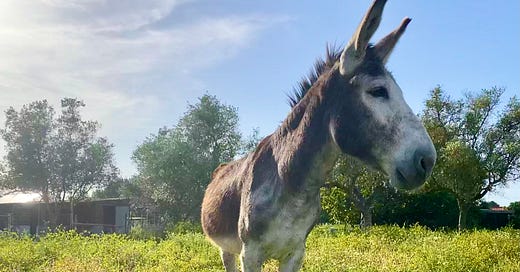


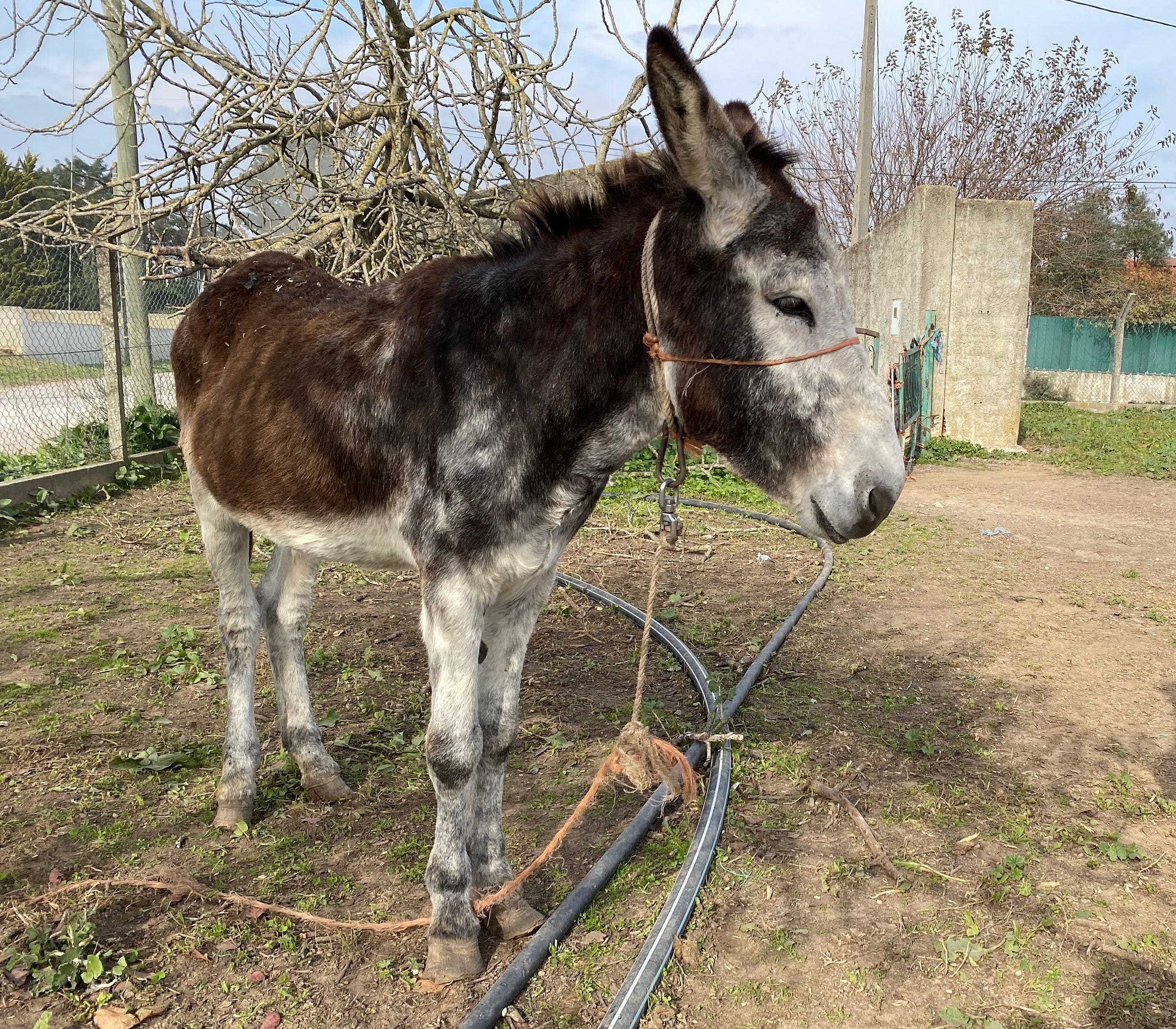
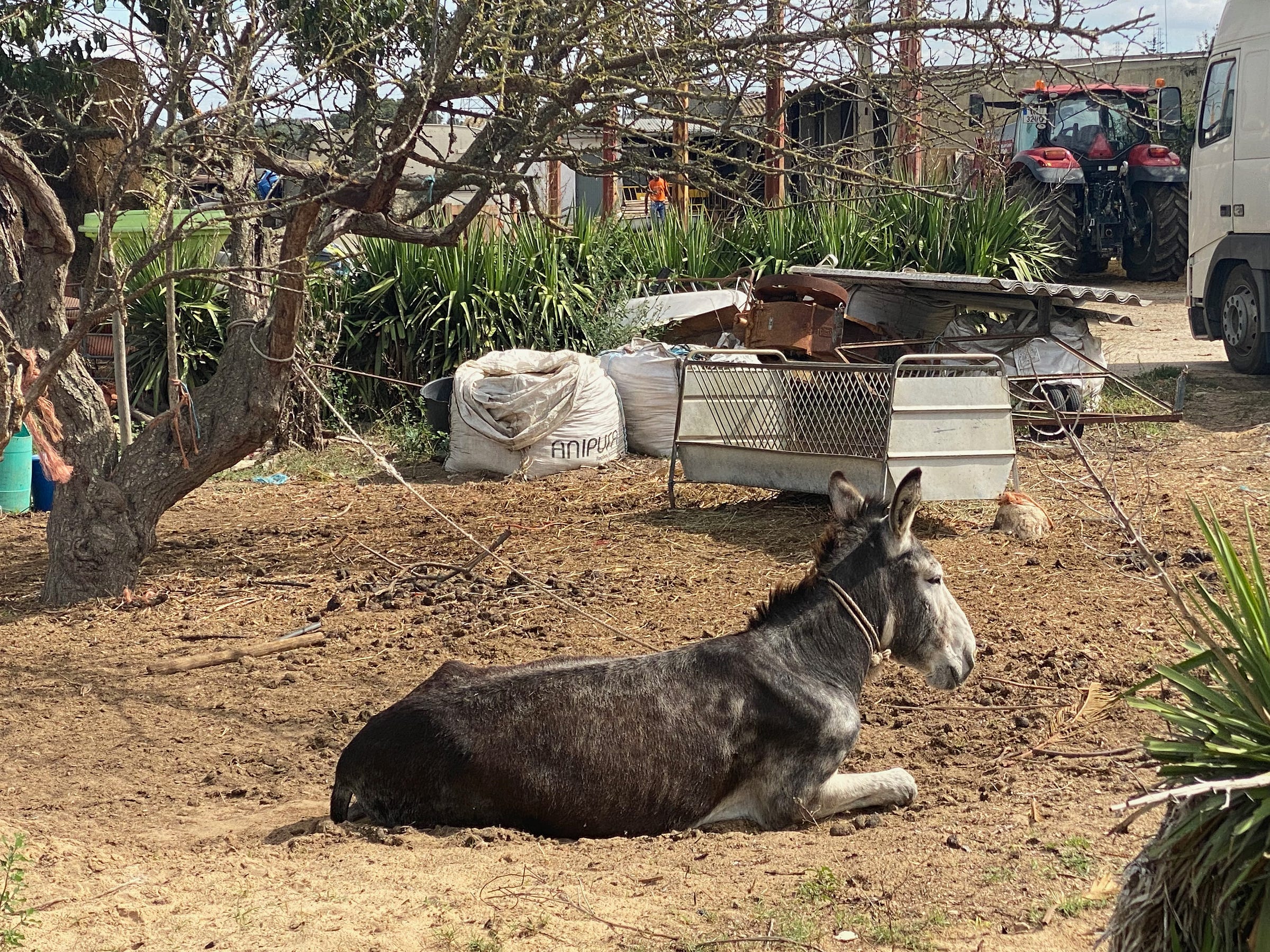
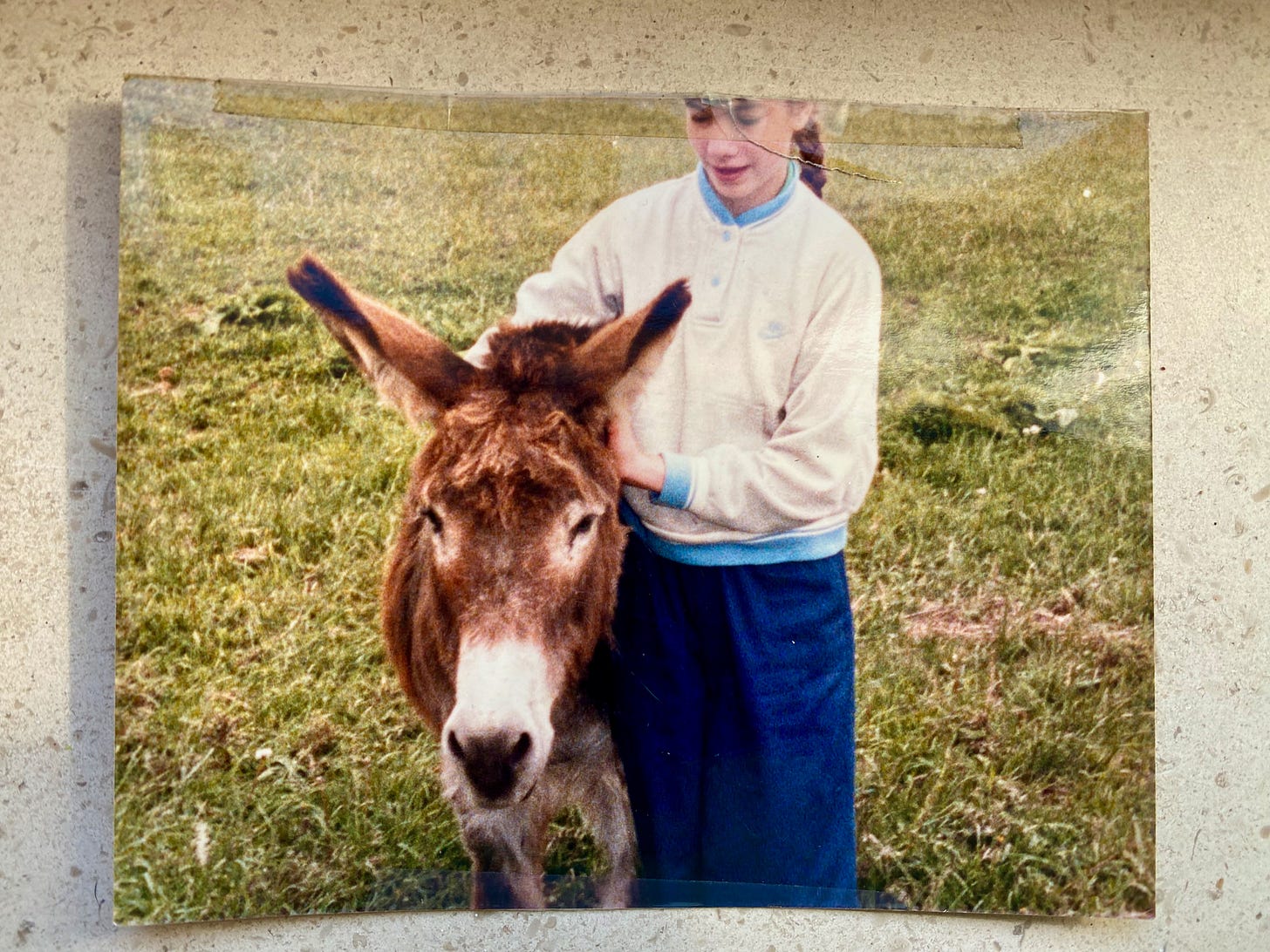

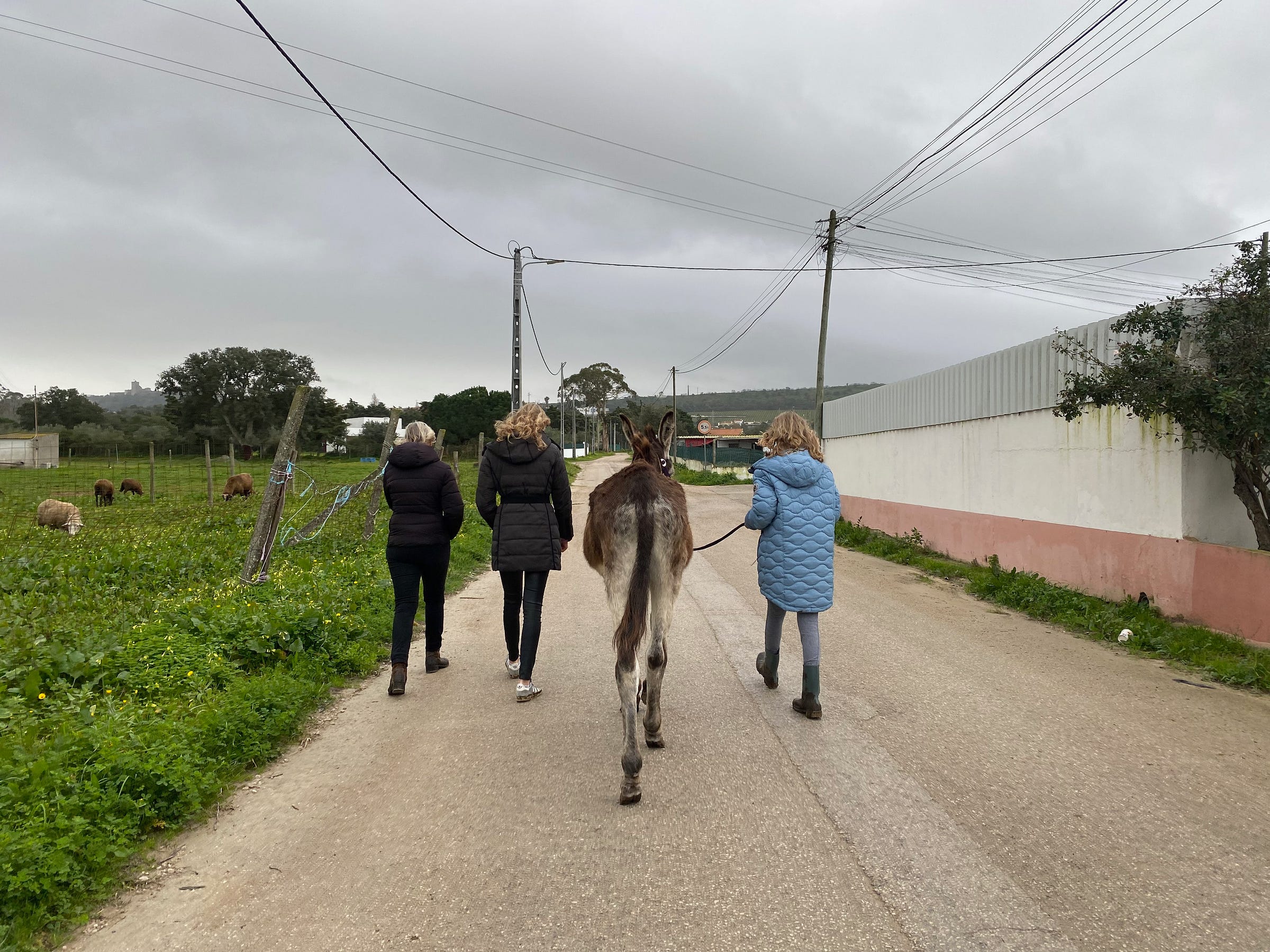
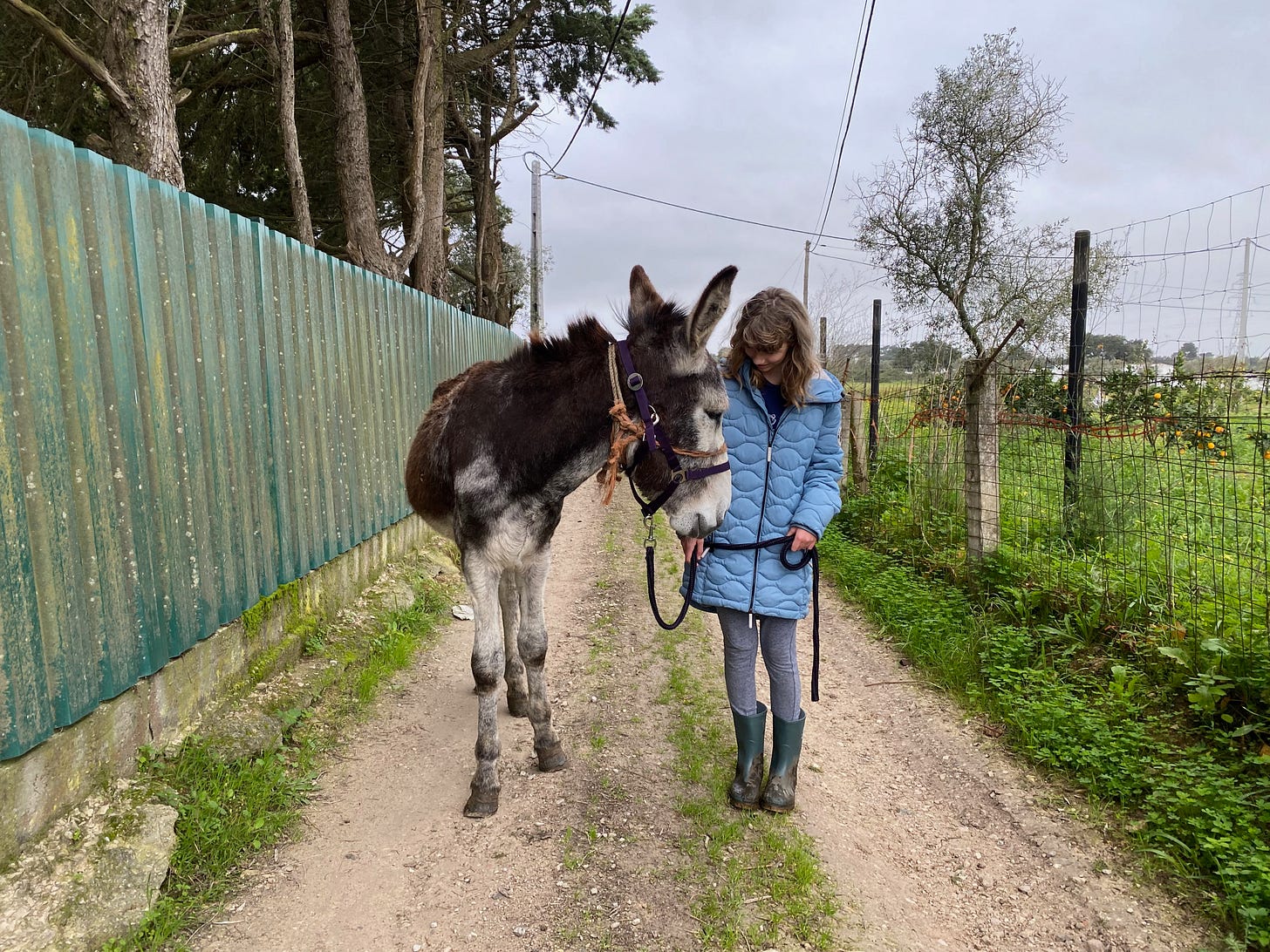
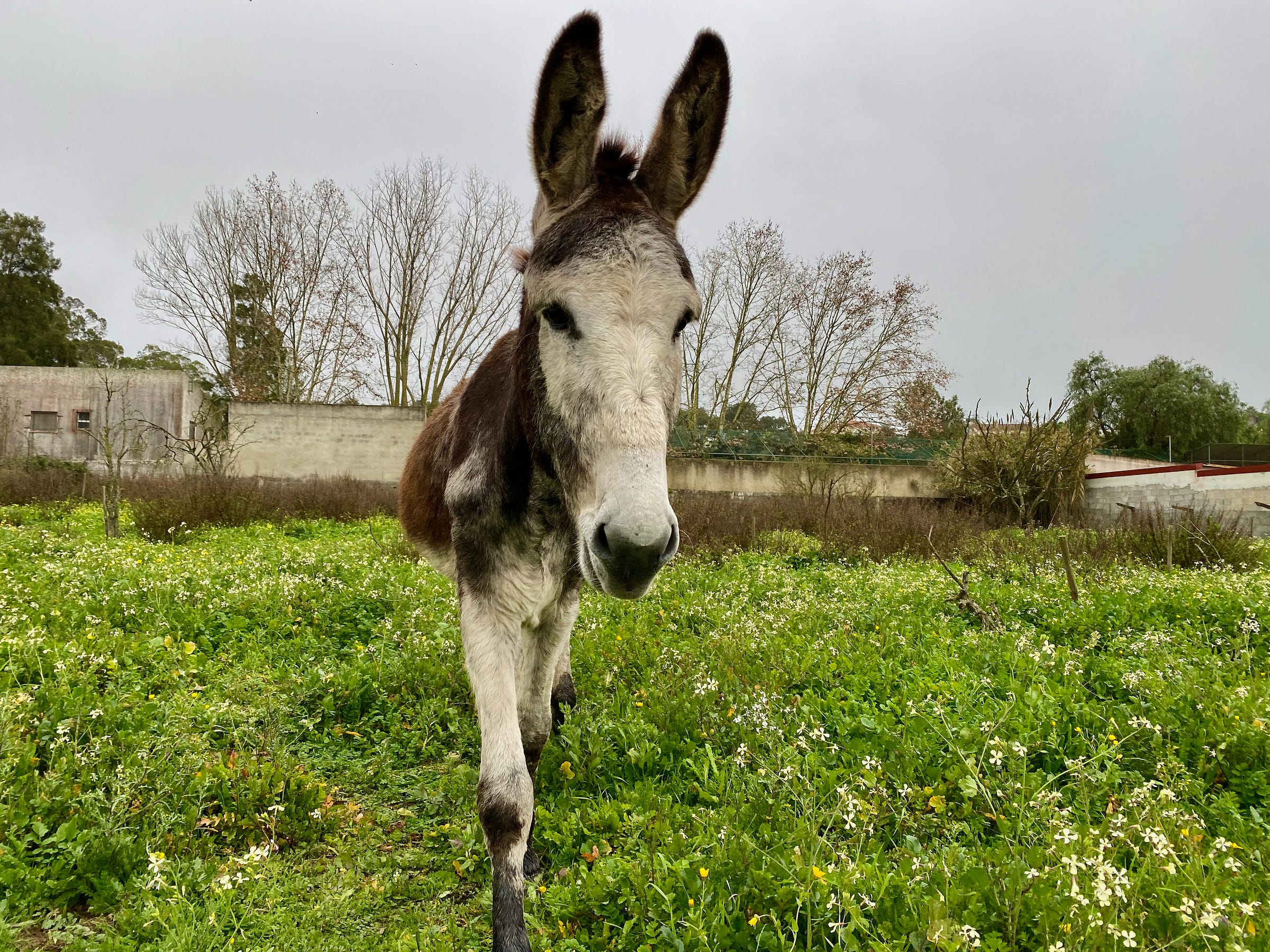
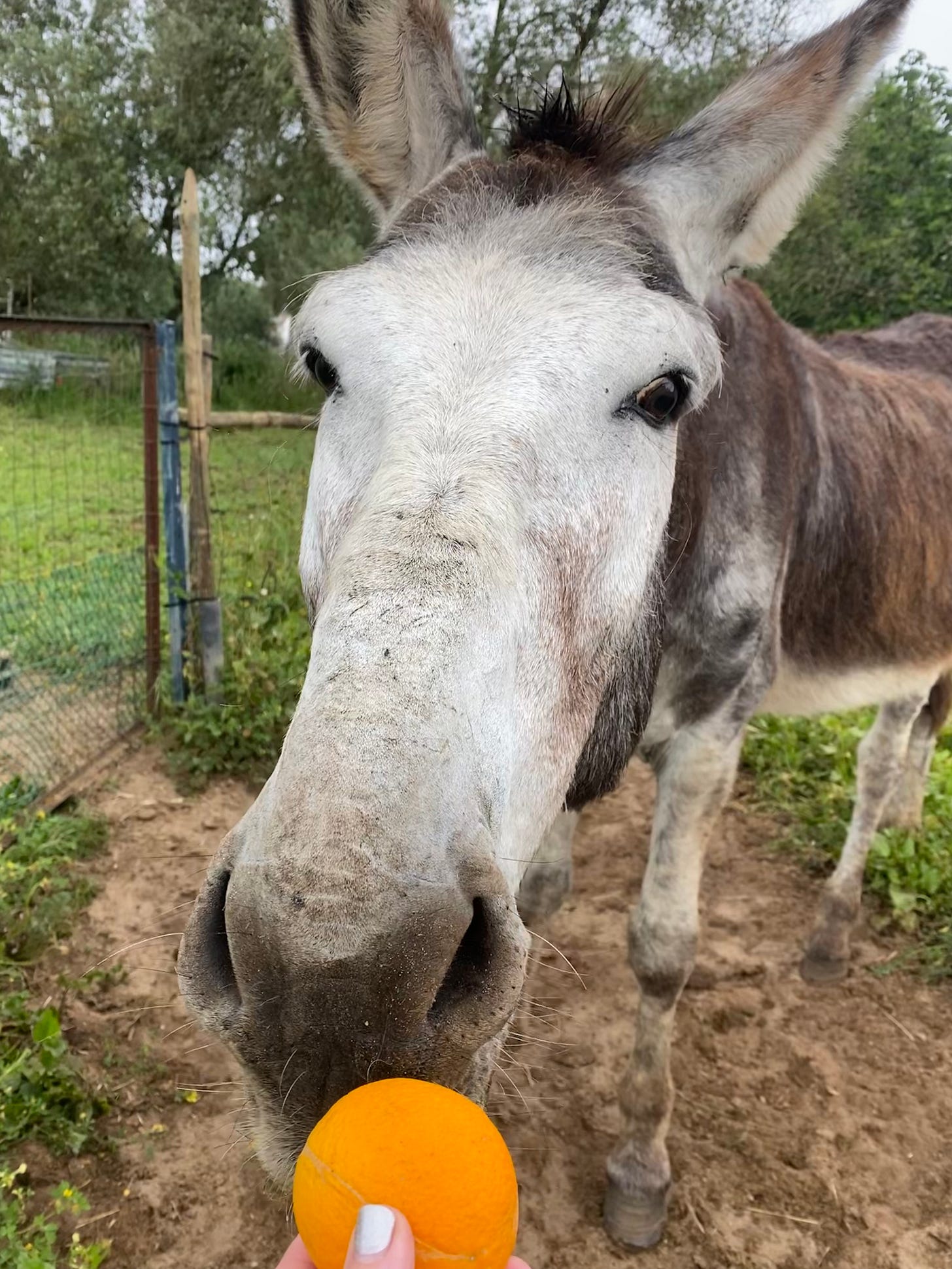


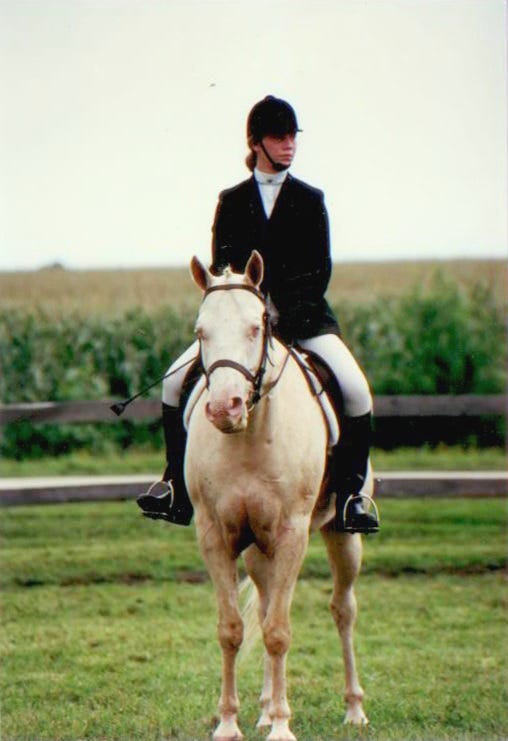
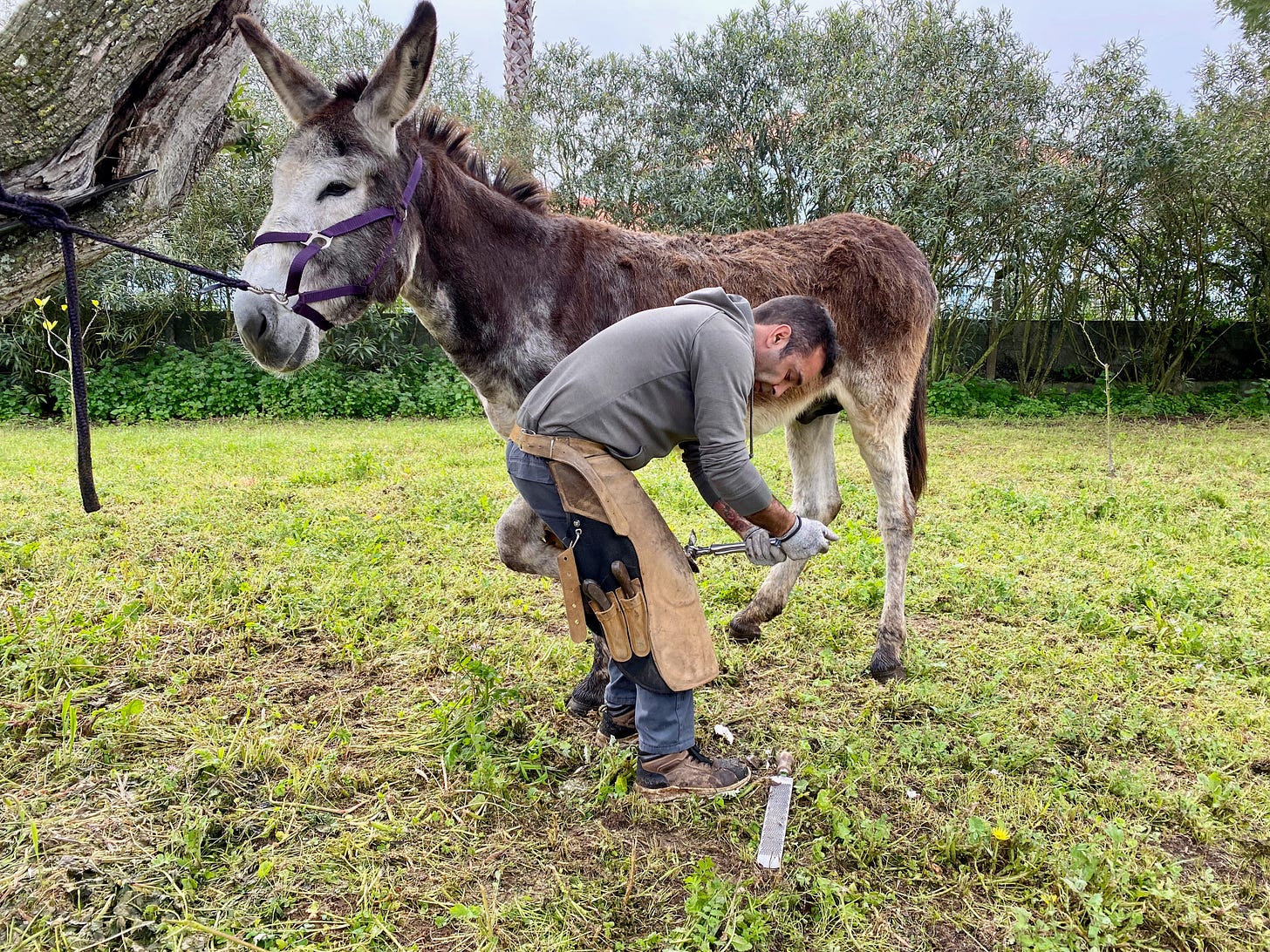

you are still a horsegirl. it's in our blood forever. no need to own a horse...you had me close to tears for your generosity to sad donkey/cinnamon toast/bonanza's life change.
Thank you, I'm sooo happy to read this! I've walked by that donkey a few times when visiting my father. It was really sad to see. Thank you for your courage, heart and energy, it's so good to know he's a happy donkey now ❤️